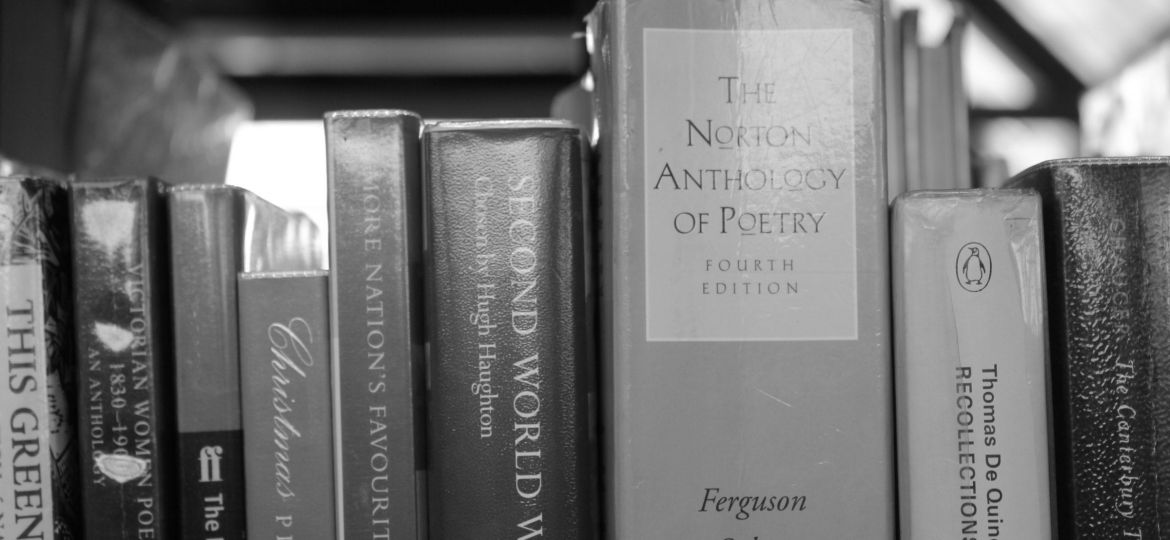
Members of the St. Olaf community gathered in Dittmann Center on Tuesday, March 15 at 6:30 p.m. to listen to faculty share excerpts from their current projects. The event, called “Works in Progress,” took place in the Flaten Art Museum. Against the brightly lit backdrop of the Via Northfield art exhibit, the four faculty members read from their works of fiction and nonfiction for their peers, students and friends.
The professors took the stage and immediately created a comfortable environment, taking listeners into their creative process with self-deprecating jokes and witty asides — garnering several big laughs from the audience. Several chairs had to be brought into the museum to accommodate the crowd, and cookies and sparkling water were served following the event.
Serving as Master of Ceremonies, Visiting Assistant Professor of English Juliet Patterson opened the event with a brief introduction about the creative writing department’s emphasis on drafting and revision. She explained that this event was not a stage for professors to present polished works, but rather a time for them to share where they were at in a few of the pieces they had worked on recently. Patterson acknowledged the vulnerability students show when they submit their written works in class, and explained that this was an opportunity for the professors to be vulnerable in return. The excerpts revealed each professor’s personal voice, tastes and curiosities.
Visiting Assistant Professor of English Sally Franson kicked off the readings with a selection from the first chapter of her novel, a piece that she has been working on for the past two years.
“These are pages that I’ve written about 7,000 times, so they should be pretty good by now,” Franson said.
The excerpt focused on a character named Casey Pendergast, a woman who works for an advertising and branding agency. From the detailed description of Casey’s application video for The Bachelorette, to a confession of her all-too-relatable conversation on a dating app, almost every line elicited a response from the audience ranging from amused audible exhales to full-bellied laughter.
Professor of Interdisciplinary Studies and Director of the Writing Program Diane LeBlanc followed with an excerpt from her essay Tethers, which revolves around her annual return to a Rocky Mountain cabin and the loss of her dog Kaya. Although she skipped a section that she found too emotional to read aloud publicly, she shared descriptions of the Colorado landscape, intertwined with memories of Kaya.
LeBlanc names this essay as the one that brings together the collection of a dozen essays she has written about leaving Wyoming for Minnesota in 2000.
Next, Patterson returned to the podium to share some of her own work. She is currently crafting a memoir about Pittsburg, Kan. and it’s significance to her family.
“After my father died, I felt compelled to go back to my parents’ hometown, which is in southeastern Kansas,” she said.
Patterson explained that this place has been a focus of her writing for many years, and that only more recently has she changed her focus to include her own experiences in the place.
“I wrote pages and pages of this, and thought I was making a book, till I showed it to someone who said, ‘well, we have no idea why you are in Kansas.’ Then it became so obvious,” Patterson said.
Her passion for teaching came out in her selection of readings. She began with a piece that described the landscape of Pittsburgh’s countryside, then followed with a revised draft in which she brought herself into the scene. The audience enjoyed hearing the transformation as the story, which had been a list of descriptions, came to life through the incorporation of an active narrator.
Visiting Assistant Professor of English Kaethe Schwehn wrapped up the night’s readings with several brief excerpts from her upcoming post-apocalyptic novel, The Rending and the Nest. Her plot focuses on a girl who survives the Rending, a mysterious event that wipes out 95% of the population. Schwehn read from the prologue and scenes from both “Before” and “After” the apocalyptic event. The depiction of an intriguing dystopian world filled with unknown piles of objects kept the audience paying rapt attention, and the disturbing flashback scene involving drunken, dangerous partygoers and a dead cat was equally arresting.
Schwehn expressed her excitement at the chance to hear her fellow professor’s work.
“This is the best. It is awesome to get to hear my fellow colleagues read — we don’t get to hear each other enough. And the fact that you’re all here is also fantastic,” she said.
After all four professors had read from their works, they held a brief question and answer session, addressing questions about the revision process, the development of their personal writing styles and their respective writing rituals. Students seemed interested in learning about each professor’s personal writing process. Franson explained that she free writes 1,000 words by hand each morning before beginning her projects, while Patterson said that she tries to write 100 words each day during the week and prefers to binge write on the weekends.
Although the event lasted for almost an hour and a half, the audience seemed unaware of the time. The authors’ bold personalities, combined with the variety of readings, held the attention of everyone in the room. The audience left the event with tremendous anticipation for the finished pieces, and great appreciation for the opportunity to hear these works in progress.
mihelich@stolaf.edu
carcater@stolaf.edu

